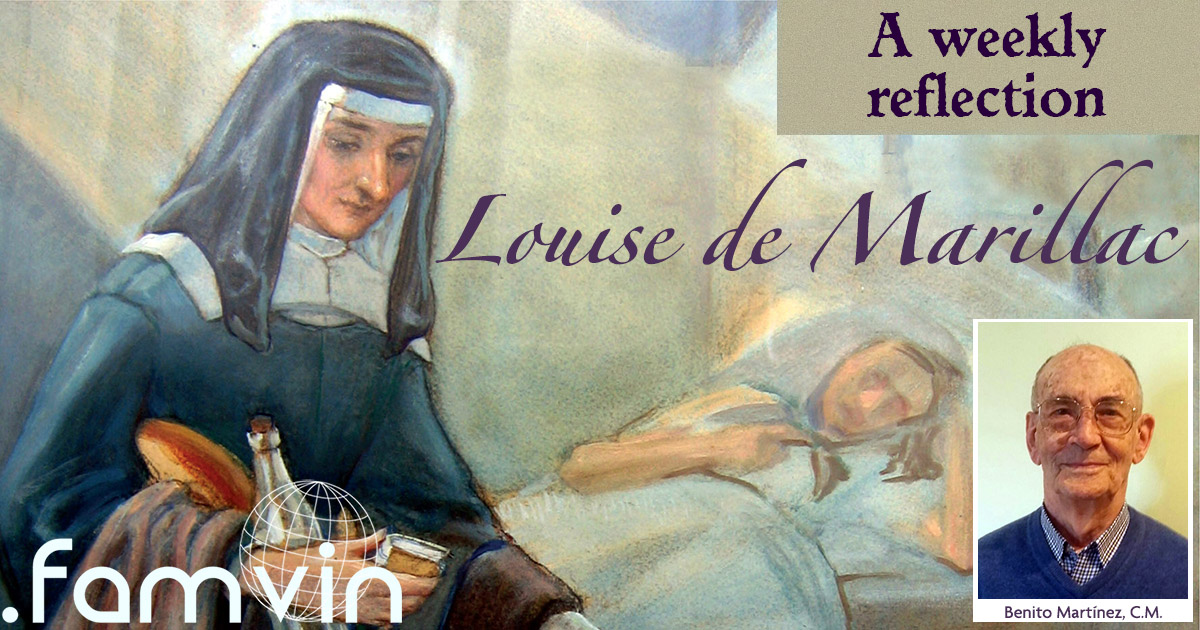“Our sister serving the galley slaves came to me in tears yesterday because she cannot get any more bread for her poor men, since she owes so much to the baker and bread is so expensive. She borrows and begs for them everywhere with great difficulty. To add to her sorrow, the Duchess d’Aiguillon wants her to make a list of those she thinks are to be put out. I raise three serious objections to this. First, she can only guess, from the way they treat her whether they insult her or praise her; this being so, she could commit an injustice. Second, some bribe the captain and the building superintendent, who are already quarrelling about her and accusing her of being the source of the disorder. Third, those who remain chained will blame her for it. And you know, my Most Honored Father, what these men can say and do.” (l. 408).
Louise de Marillac, P.S. in a letter from Saint Louise de Marillac to Saint Vincent de Paul.
Reflection:
- The galley slaves in Paris, before taking them to the galleys of Marseilles, were chained in a dungeon full of wooden beams, distant one meter from one another. In the beams iron chains of half a meter were nailed with a metal collar that was put on the neck of the galley slave and closed by hammering on an anvil. On each beam there were twenty men who could not stand and were always obliged to sit with their heads bowed.
- When feeding them, the Daughters passed between the benches listening to rude words and the threat of touching by men who did not even care about death anymore. The vigilance of corrupt guardians was not enough, so that a Lady of Charity (AIC) had to be present during meals so that her social category detained prisoners and guardians.
- None of this can be applied today to the prisons of ordinary prisoners. International laws and regulations prohibit it and Amnesty International and many other organizations monitor compliance. But there are modern prisons without the human contact of people. The prisoner feels alone and isolated. From an enclosure, the guards control everything on television and direct the prisoners by megaphone with no human presence other than the prisoner.
- Some prisoners also suffer the pain of relatives who mourn their situation, more if they have small children; others feel the absence of relatives and friends who reject them, ignore them or are indifferent to them.
- The Vincentian Family cannot ignore the situation of these unhappy people. We have already seen the stance of Saint Louise, like that of Saint Vincent and Blessed Ozanam. They tell us that they are poor in modern society and that many have been somehow made by a society that now rejects them.
Questions for dialogue:
- Have you been allowed to visit a prisoner?
- What is your concept of common prisoners? And the concept of your environment?
Benito Martínez, C.M.






0 Comments